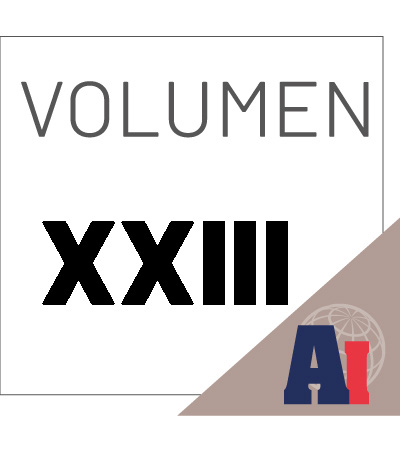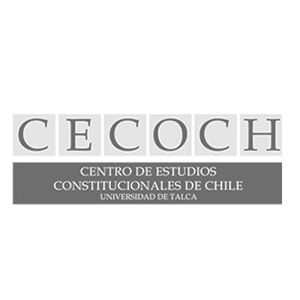La influencia de la doctrina en el Tribunal de Justicia de la Comunidad Andina
El artículo 38 del Estatuto de la Corte Internacional de Justicia enumeró las fuentes del derecho internacional, y a la doctrina como un medio auxiliar. El uso de la doctrina por los tribunales de justicia internacionales llamó la atención de la literatura; sin embargo, éste no ha sido el caso del Tribunal de Justicia de la Comunidad Andina (TJCAN). El objetivo de este artículo es analizar la forma como el TJCAN usó la doctrina, por qué la utilizó y qué rol ha tenido en sus decisiones. Este artículo plantea que la doctrina tuvo un valor agregado y persuasivo en las interpretaciones del TJCAN. Se revisaron 133 sentencias; el 81.20% incorporaron la doctrina. La doctrina aportó información en el análisis del TJCAN e influyó en sus interpretaciones a través de los años.
Detalles del artículo
Uso de licencias Creative Commons (CC)
Todos los textos publicados por el Anuario Mexicano de Derecho Internacional sin excepción, se distribuyen amparados con la licencia CC BY-NC 4.0 Internacional, que permite a terceros utilizar lo publicado, siempre que mencionen la autoría del trabajo y la primera publicación en esta revista. No se permite utilizar el material con fines comerciales.
Derechos de autoras o autores
De acuerdo con la legislación vigente de derechos de autor el Anuario Mexicano de Derecho Internacional reconoce y respeta el derecho moral de las autoras o autores, así como la titularidad del derecho patrimonial, el cual será transferido —de forma no exclusiva— al Anuario para permitir su difusión legal en acceso abierto.
Autoras o autores pueden realizar otros acuerdos contractuales independientes y adicionales para la distribución no exclusiva de la versión del artículo publicado en el Anuario Mexicano de Derecho Internacional (por ejemplo, incluirlo en un repositorio institucional o darlo a conocer en otros medios en papel o electrónicos), siempre que se indique clara y explícitamente que el trabajo se publicó por primera vez en el Anuario.
Para todo lo anterior, deben remitir la carta de transmisión de derechos patrimoniales de la primera publicación, debidamente requisitada y firmada por las autoras o autores. Este formato debe ser remitido en PDF a través de la plataforma OJS.
Derechos de lectoras o lectores
Con base en los principios de acceso abierto las lectoras o lectores de la revista tienen derecho a la libre lectura, impresión y distribución de los contenidos del Anuario por cualquier medio, de manera inmediata a la publicación en línea de los contenidos. El único requisito para esto es que siempre se indique clara y explícitamente que el trabajo se publicó por primera vez en el Anuario Mexicano de Derecho Internacional y se cite de manera correcta la fuente incluyendo el DOI correspondiente.
Citas
Alschner, Wolfgang y Charlotin, Damien, “The Growing complexity of the International Court of Justice’s Self-Citation Network”, The European Journal of International Law, vol. 29, núm. 12018.
Arévalo Ramirez, Walter, Manual de derecho internacional público. Fundamentos, tribunales internacionales y casos de estudio, 2a. ed., Bogotá, Tirant lo Blanch, 2020.
Barnard, Catherine, The Substantive Law of the EU: the Four Freedoms, Oxford, Oxford University Press, 2013.
Becerra Ramírez, Manuel, Las fuentes contemporáneas del derecho internacional, México, UNAM, Instituto de Investigaciones Jurídicas, 2017, disponible en: https://archivos.juridicas.unam.mx/www/bjv/libros/10/4671/12.pdf.
Besson, Samantha, “Theorizing the sources of international law”, en Besson, Samantha y Tasioulas, John (eds.), The Philosophy of International Law, Oxford, Oxford University Press, 2010.
Brabandere, Eric de, “The Use of Precedent and External Case Law by the International Court of Justice and the International Tribunal for the Law of the Sea”, The Law and Practice of International Courts and Tribunals, vol. 15, 2016.
Caro de Sousa, Pedro, The European Fundamental Freedoms: a Contextual Approach, Oxford, Oxford University Press, 2015.
Casado Raigón, Rafael, Derecho Internacional, 2a. ed., Madrid, Tecnos, 2014.
Charlotin, Damien, “The Place of Investment Awards and WTO Decisions in International Law: A Citation Analysis”, Journal of International Economic Law, vol. 20, núm. 2, 2017.
Diez de Velasco Vallejo, Manuel, Instituciones de derecho internacional público, 18a. ed., Madrid, Tecnos, 2013.
Fauchald Ole, Kristian, “The Legal Reasoning of ICSID Tribunals–an Empirical Analysis”, European Journal of International Law, vol. 19, núm. 2, 2008.
Farinella, Favio, “Reinterpretación de las fuentes del derecho internacional desde una perspectiva de derechos humanos”, Revista Anales de la Facultad de Ciencias Jurídicas y Sociales, La Plata, vol. 15, núm. 48, 2018.
Follesdal, Andreas, “Survey Article: The Legitimacy of International Courts”, Journal of Political Philosophy, vol. 28, núm. 4, 2020.
Fried, Charles, “Scholars and Judges: Reason and Power”, Harvard Journal of Law & Public Policy, vol. 23, núm. 3, 2000.
Grant, John, International Law Essentials, Edinburgo, Edinburgh University Press, 2010.
Helmersen, Sondre Torp, “Finding «the most highly qualified publicists»: Lessons from the International Court of Justice”, European Journal of International Law, vol. 30, núm. 2, 2019.
Helmersen, Sondre Torp, “Scholarly-Judicial Dialogue in International Law”, The Law & Practice of International Courts and Tribunals, vol. 16, núm. 3, 2017.
Helmersen, Sondre Torp, “The Application of Teachings by the International Tribunal for the Law of the Sea”, Journal of International Dispute Settlement, vol. 11, 2020.
Helmersen, Sondre Torp, “The Use of Scholarship by the WTO Appellate Body”, Goettingen Journal of International Law, vol. 7, núm. 2, 2016.
Hollis, Duncan B., “Interpretation”, en D’aspremont, Jean y Singh, Sahib (eds.), Concepts for International Law, Cheltenham, Edward Elgar Publishing, 2019.
Kadir, M. y Ya’Kub A, “The United Nations General Assembly Resolution (UNGAR) as a Source of International Law: Toward a Reformulation of Sources of International Law”, Indonesian Journal of International Law, vol. 8, núm. 2, 2011.
Herman, Lawrence L., “International Law in a Turbulent World”, Canada-United States Law Journal, vol. 41, 2017.
Moncayo, Guillermo R. et al., Derecho Internacional Público, Buenos Aires, Zavalia, t. l, 1990.
Monroy Cabra, Marco Gerardo, “Aproximación al concepto de fuentes del derecho internacional”, Estudios Socio-Jurídicos, vol. 7, núm. 2, 2005.
Novak Talavera, Fabián, “Los criterios para la interpretación de los tratados”, THEMIS: Revista de Derecho, núm. 63, 2013.
Olivier, Michèle, “The Relevance of Soft Law as a Source of International Human Rights”, Comparative and International Law Journal of Southern Africa, vol. 35, núm. 3, 2002.
Olmos Giupponi, Belén, “International Law and Sources of Law in Mercosur: An Analysis of a 20-Year Relationship”, Leiden Journal of International Law, vol. 25, núm. 3, 2012.
Pauwelyn, Joost y Elsig, Manfred, “The Politics of Treaty Interpretation”, en Dunoff, Jeffrey y Pollack, Mark (eds.), Interdisciplinary Perspectives on International Law and International Relations: The State of the Art, Cambridge, Cambridge University Press, 2012.
Peil, Michael, “Scholarly Writings as a Source of Law: A Survey of the Use of Doctrine by the International Court of Justice”, Cambridge Journal of International and Comparative Law, vol. 1, núm. 3, 2012.
Pellet, Alain, “Canons of Interpretation under the Vienna Convention”, en Klingler, Joseph et al. (eds.), Between the Lines of the Vienna Convention? Canons and Other Principles of Interpretation in Public International Law, Den Haag, Kluwer Law International, 2018.
Thornton, Jennifer, “Courts and Tribunals Established by Regional Economic Integration Agreements”, en Giorgetti, Chiara (eds.), The Rules, Practice, and Jurisprudence of International Courts and Tribunals, Países Bajos, Brill, 2012.


































